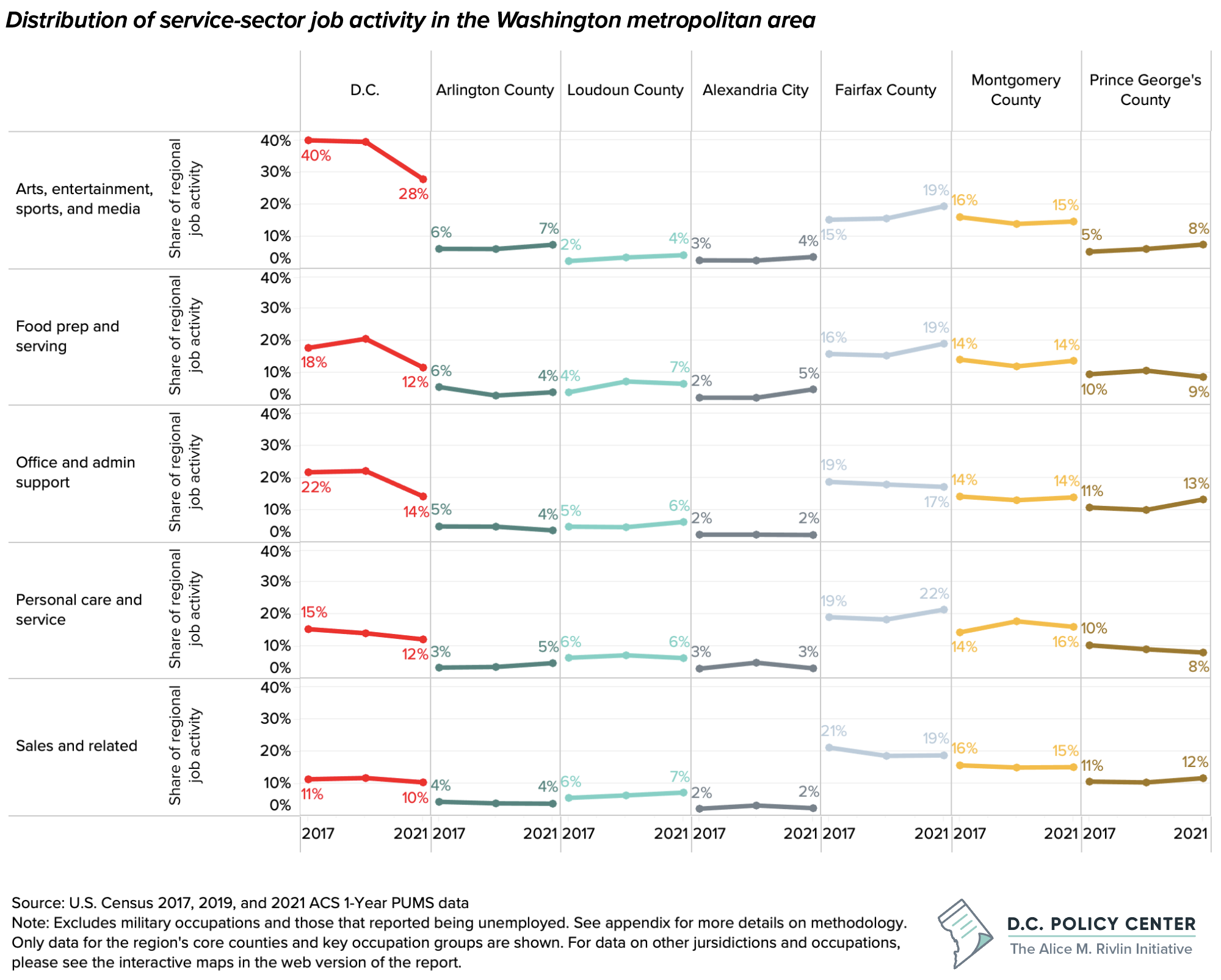The pandemic accelerated labor market shifts that present new challenges and risks to large metropolitan areas like the D.C. region. When it comes to attracting talent, D.C. not only competes with neighbors like Arlington, Fairfax, and Montgomery Counties, but also large and small cities across the country. This has always been the case, but now, workers and businesses alike are increasingly mobile thanks to the rise of remote work.
Traditional job data do not account for where workers are working. This can obscure where labor market recovery is taking place. Typically, jobs are counted based on where an employer is located. For example, an establishment in D.C. that employs 10 workers contributes 10 jobs to D.C.’s labor market, regardless of where those workers live. But if office workers are working from home, traditional employer-based data only capture these workers when they are in-office. Accordingly, a city can job activity without losing jobs.
To better understand shifts in the labor market due to remote work, we focus on job activity—a term we’ve coined capture the spread of regional jobs based on where workers are actually working—by using the U.S. Census Bureau’s American Community Survey (ACS) data on worker-reported place of work by occupation.
Next week, the D.C. Policy Center’s Alice M. Rivlin Initiative for Economic Policy & Competitiveness will publish a report “Job sprawl in the Washington metropolitan area: Is D.C. still the region’s job hub?” The report explores how job activity is shifting and what it means for the District’s competitiveness in the region. We found that significant portions of job activity has moved to suburbia and exurbia in occupations where employers can work remotely. Importantly, when this happens, other types of job activity follow them.
In the long-term, service-oriented jobs will follow economic activity and businesses may no longer be able to justify the costs of being in D.C. if their workers are elsewhere, further depressing office demand.


This chart of the week is excerpted from our forthcoming report, Worker sprawl in the Washington metropolitan area: Is D.C. still the region’s job hub?, available May 1, 2023.
